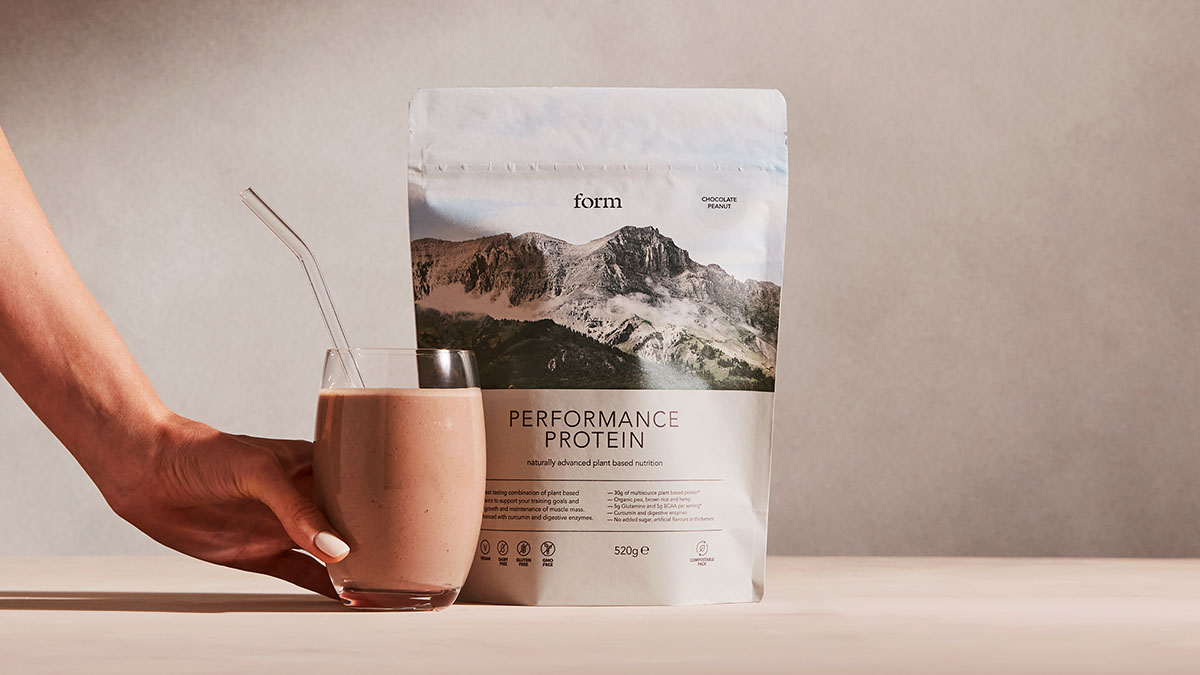Ask Dr Adam: Can You Build Muscle In A Calorie Deficit?

For years, long-standing gym floor theory has taught us that when it comes to seeing physical gains from lifting weights, we need to focus on one thing: either losing fat or gaining muscle.
You only need to look at the bodybuilding community for proof, who carve their time into dedicated periods of bulking and cutting, believing that one can only be achieved in the absence of the other.
While laser-focusing on a singular fitness goal is never completely a bad thing, the idea that you can’t make gains while lowering your daily calorie count may not be as clear cut as you think.
To help unpack this complex topic, we asked Form’s Head of Nutrition Dr. Adam Collins to run us through the science.
So, can you build muscle in a calorie deficit?
“The short answer is yes,” stresses Dr Adam. “Whichever way you look at it, a calorie deficit will lead to a loss of energy, initially from our glycogen stores and then predominantly from body fat.”
While it’s natural to think that weight loss will cause all of your hard-earned growth gains to dissipate entirely, Dr Adam explains that this isn’t necessary true: “What many people don’t realise is that the rate of our body fat typically lost in a calorie deficit far outweighs that of our fat-free mass (FFM).”
As a quick explainer, fat-free mass is a component of your body composition that includes water, organs, bone and muscle content. “When we’re in a calorie deficit, it can actually lead to favourable changes to our physical composition, including a decrease in weight and an increase in FFM, as a percentage of our overall body weight.” The result? A leaner, svelter and more defined bod.

Why does muscle definition appear to increase during weight loss?
It’s important to highlight that your muscles aren’t magically increasing when you’re in a calorie deficit. Rather, swole definition happens because you’ve honed a higher ratio of muscle compared to your overall declining levels of body fat. This is why bodybuilders often look more built in the final cutting phase of their training plan.
“That’s not to say you can’t still build muscle while in a calorie deficit,” caveats Dr Adam. “Even when you’re dieting, you can still supply your body with the three key things it needs to gain brawn: exercise, an adequate amount of energy from glucose, and a good supply of amino acids.”
If you’re thinking about embarking on a calorie deficit for health reasons, it’s always important to fuel your workouts safely, and it’s never a good idea to embark on a crash diet, let alone when you’re in a period of going hard at the gym.
As a rule of thumb, calorie deficits shouldn’t exceed any more than 500 calories nixed from the NHS-approved daily recommended intakes for men and women. If you’re already sitting in a healthy BMI range, it’s a good idea to talk to your doctor about whether weight loss is right for you.
“Studies have found that when it’s safely managed, an energy-deficit diet that incorporates resistance exercise can retain more fat-free mass in the body, and even increase lean mass,” adds Dr Adam. “And even without seeing any obvious gains in the mirror, resistance exercise has also been shown to maintain or increase muscle strength within a calorie deficit.”
Is a calorie deficit the best route for muscle growth?
Within the science and fitness community, there’s heated debate as to the effectiveness of the calorie deficit on muscle growth.
“Some studies have argued that muscle gains are manageable on an energy deficit up to 500 calories per day,” says Dr Adam. “In theory, this type of deficit would cover traditional calorie-restricted diets, as well as intermittent fasting, which often averages out at 500 calories per day across the week.”
He continues: “But a more important consideration for people who are dieting is the timing of exercise and dietary intake.” In other words, it’s important to make sure that your gym time coincides with a good supply of amino acids and fuel.

To compensate for a calorie deficit, Dr Adam recommends fueling with a good source of protein, such as a generous portion of edamame beans, a bowl of grilled tofu or a Form Performance protein shake. “Protein intakes may need to rise to 1.2 to 2kg per day to compensate for your daily loss of fuel. Plus, it’s not just about eating more protein, but timing your meals and supplements in the golden window before and after exercise.”
While technically you can gain muscle while prioritising weight loss, this doesn’t mean that it is the best route to gaining muscle overall. Studies have found that a calorie surplus is way more advantageous for people looking to build the maximum amount of muscle. So, if you’re already in a healthy weight range, there’s no reason to switch up your strategy and scrimp on the post-workout calories – especially if muscle growth is your overall goal.
Finally, Dr Adam adds that we shouldn’t overlook the other beneficial changes in muscle that can be aided by a safe calorie deficit. “Much of the endurance adaptations that happen in muscles are aided by a stimulus of low energy,” he notes. “And these benefits in particular can be supercharged by a timed supply of protein and carbohydrates.”


















